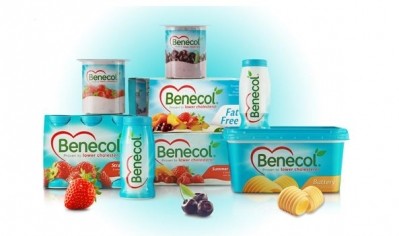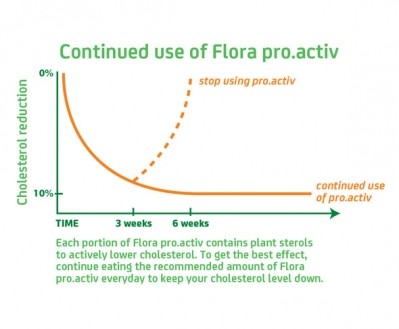EU heart health group backs sterols-stanols

The EAS ‘Consensus Statement’ was published recently in Atherosclerosis journal and represents the first time it has backed sterols and stanols in this way.
EAS said the cholesterol-busting foods that have won European Union claims under the nutrition and health claims regulation (NHCR), could provide benefits to statin users in conjunction with ‘lifestyle measures’ and could also benefit those who are statin-intolerant.
Non statin users as well as those with familial hypercholesterolaemia (FH) were also included among those who could benefit from stanols and sterols.
But they added: “However, it must be acknowledged that there are no randomised, controlled clinical trial data with hard end-points to establish clinical benefit from the use of plant sterols or plant stanols.”
Raisio and Unilever, whose Benecol (stanols) and Pro.activ (sterols) brands dominate the global space, welcomed the EAS position.
Mikko Laavainen, VP of licensed brands at Raisio, said the statement bolstered the position of Benecol among health claim professionals and could boost consumer awareness.
“This is an important acknowledgement and will be used to get the message out.”
A Unilever spokesperson said: “We see this as a independent confirmation that our Pro.Activ products are a valuable tool in promoting heart health.”
Prevention
Led by Helena Gyllinge from the University of Helsinki, the researchers said, “…given the increasing importance of early preventive strategies in hypercholesterolaemia, the potential for inclusion of plant sterol- or plant stanol -enriched foods in the diet of adults and children (>6 years) with FH, as an adjunct to lifestyle and pharmacotherapy, may be considered.”
“We base these recommendations on the proven ability of plant sterols/stanols to lower plasma LDL-C levels in the absence or presence of concomitant statin therapy, and equally on evidence that they reduce plaque size in atherosclerosis-prone animal models. We understand that, in the absence of CVD outcome data from randomised clinical trials, the evidence for use of plant sterols/stanols is incomplete.”
They called for further research into areas including:
- Evaluation of the effects of plant sterols/stanols in patients with metabolic syndrome;
- Mendelian randomisation studies to investigate the effects of plant sterols/stanols on clinical outcomes;
- Evaluation of long-term safety and effects on clinical outcomes in registries.
“Finally, although this EAS Consensus Panel did not find evidence for any health risk associated with consumption of these functional foods, the Panel recognises the lack of outcomes data showing clinical benefit.”
“…the EAS Consensus Panel would clearly welcome, and applaud, efforts by the food industry to plan and conduct a well-designed and adequately powered study of the effects of plant sterol/stanol-supplemented foods on CVD outcomes.”
The EU health claim backs stanols and sterols to reduce blood levels of LDL-cholesterol by an average of 10 % in those with moderate cholesterol issues.



![ASA said the Benecol TV ad, "did not include the required information about high cholesterol being a risk factor in the development of CHD [coronary heart disease].”](/var/wrbm_gb_food_pharma/storage/images/_aliases/wrbm_medium/7/0/0/5/1395007-1-eng-GB/Benecol-blood-boils-after-cholesterol-ad-lanced.jpg)




